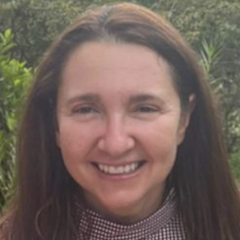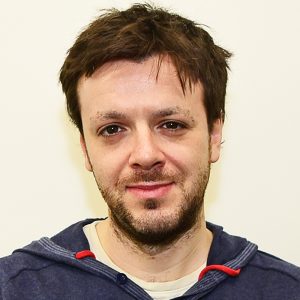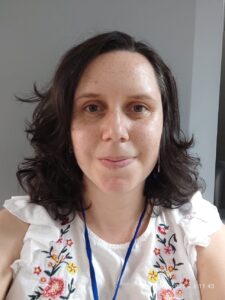Genomics and Epidemiological Surveillance of Bacterial Pathogens
6–11 July 2025
Costa Rica
Learn how to apply genomics to epidemiological surveillance of bacterial pathogens and public health.
Overview
In collaboration with the Universidad Nacional and Universidad de Costa Rica, we are pleased to announce our latest overseas course in Genomics and Epidemiological Surveillance of Bacterial Pathogens.
This course is built on a strong foundation, bringing together expert instructors from leading academic and public health organisations. It highlights the synergy between research and infectious disease surveillance, providing a unique learning opportunity.
This course will provide training in the latest computational methods for analysis and interpretation of high throughput genome sequence data in a public health setting. Although the course is built around genomic surveillance the focus of this course is designed to reflect regional public health priorities on bacterial pathogens, with a strong emphasis on infections endemic to Latin America.
Course background
Established in 2013, the course provides skills to combine epidemiological, metadata and genomics data analysis, hence contributing to generating the most reliable information available for public health decision making. In the last few years, the COVID-19 pandemic challenge accelerated the introduction of advances in genomics, sequencing technology and our ability to interpret high resolution sequence data for surveillance purposes, both regionally and internationally. We are now seeing a shift from the use of molecular typing data to using Whole Genome Sequencing (WGS) for epidemiological surveillance and public health investigations of infectious disease. In some settings WGS is now being used to define outbreaks and trace infection sources in humans, animals and the environment, contributing to reinforce a One Health approach. This approach also offers enormous promise for predicting antimicrobial resistance (AMR) phenotypes.
What Will You Learn?
- How genomic data is revolutionising the tracking and understanding of bacterial pathogen spread, providing valuable context for local disease patterns.
- The power of collaboration and insights from renowned public health experts and academic researchers across Latin America and Europe, involved in advancing infectious disease control.
- The critical link between research and public health and how you can play a role in strengthening this connection.
Target audience
The course is targeted at clinical or public health molecular biologists and microbiologists working in Latin America and the Caribbean.
The course is free to attend for non-commercial applicants. Limited travel bursaries are also available.
Programme
Programme
This course builds upon previous versions, incorporating genomics and problem solving exercises with modules that demonstrate how epidemiological information and phenotyping – in combination with sequence data – can be used:
- for georeferencing (also known as ‘phylogeography’) where the location of disease causing strains are mapped with detailed genetic and phenotypic data (for example AMR patterns) to look for regional patterns of disease, and
- to understand the fine detail of new and emerging infections, risks to public health, and contribute to the management of infectious diseases.
The week-long programme will include:
- Practical bioinformatics skills needed to manipulate raw sequence data, including: mapping and de novo assemblies, SNP calling, annotation, antimicrobial resistance calling, and analysis of genomic information
- Principles of phylogeny and construction of accurate phylogenies
- Group exercises designed to teach everyday skills required to work in genomic surveillance
- Practical exercises for using GPS to map cases of infectious disease and phenotypes (such as AMR) regionally and across the world
Learning outcomes
After attending the course, participants should be able to:
- Select and apply appropriate tools to analyse genome sequence data effectively
- Perform comparative genomics on multiple genome sequences
- Interpret phylogenetics to gain insights into pathogen evolution and epidemiology
- Formulate projects using the global surveillance platform Microreact and Epicollect
- Explain, using examples, how bacterial pathogens and AMR can spread among human populations.
Instructors and speakers
Instructors

Caterina Guzman Verri
Universidad Nacional, Costa Rica

Josefina Campos
World Health Organization

Matt Holden
University of St Andrews, Scotland

Mathew Beale
Wellcome Sanger Institute, UK

Julio Caballero
Ellison Institute of Technology Oxford, UK

Matthew Dorman
University of Galway, Ireland

Francisco Duarte-Martínez
INCIENSA, Costa Rica

Jose Arturo Molina Mora
Universidad de Costa Rica, Costa Rica

María Sol Haim
National Center of Genomics & Bioinformatics - ANLIS-Malbran, Argentina

Tomás Poklepovich
National Center of Genomics & Bioinformatics - ANLIS-Malbran, Argentina

César Rodríguez
Universidad de Costa Rica, Costa Rica

Marcela Suarez
Universidad Nacional, Costa Rica

Jordan Ashworth
Public Health Scotland, UK

Nazareth Ruiz Villalobos
Universidad Nacional, Costa Rica
Organisers

Michelle Bishop
Wellcome Connecting Science

Isabela Malta
Wellcome Connecting Science

Monica Abrudan
Wellcome Connecting Science

Nicola Stevens
Wellcome Connecting Science

Martin Aslett
Wellcome Connecting Science
How to apply
Prerequisites
Applicants should be clinical/public health molecular biologists or microbiologists working in Latin America and the Caribbean.
Places are limited and the course will be held in English (with language support provided where necessary by Spanish- and Portuguese-speaking instructors).
*Please note: The practical sessions will be taught exclusively through Unix/Linux. Therefore, participants are required to have some familiarity with the Linux operating system. This will be essential for participants to fully benefit from the course. A free Introduction to Linux for Biologists online course will be provided free of charge for selected participants to equip them with essential bioinformatics skills for pathogen genomics.
How to Apply
Please click the Apply button above to begin the online application process. Places are limited and will be awarded on merit. If you have any problems with the online application process, please contact us.
Applications must be supported by a recommendation from a scientific or clinical sponsor (e.g. supervisor, line manager or head of department). A request for a supporting statement will be sent to your nominated sponsor automatically during the application process. Applicants must ensure that their sponsor provides this supporting statement by the application deadline. Applications without a supporting statement cannot be considered.
Accommodation services phishing scam – please be vigilant. More information
Cost
Cost
The course is subsidised by Wellcome Connecting Science and is free to attend.
Bursaries
A limited number of bursaries are available. These are awarded on merit to cover travel, accommodation, and meals. Please note that accommodation provided for bursary recipients will be shared, with rooms allocated based on gender.
Bursaries may be requested when completing the course application form. Applicants will be informed of the outcome of their bursary application along with their course acceptance, usually within one month of the application deadline. The selection committee’s decision is final.
Please note that both the applicant and their sponsor must provide a justification for the bursary as part of the application process.
Accommodation services phishing scam – please be vigilant. More information.

